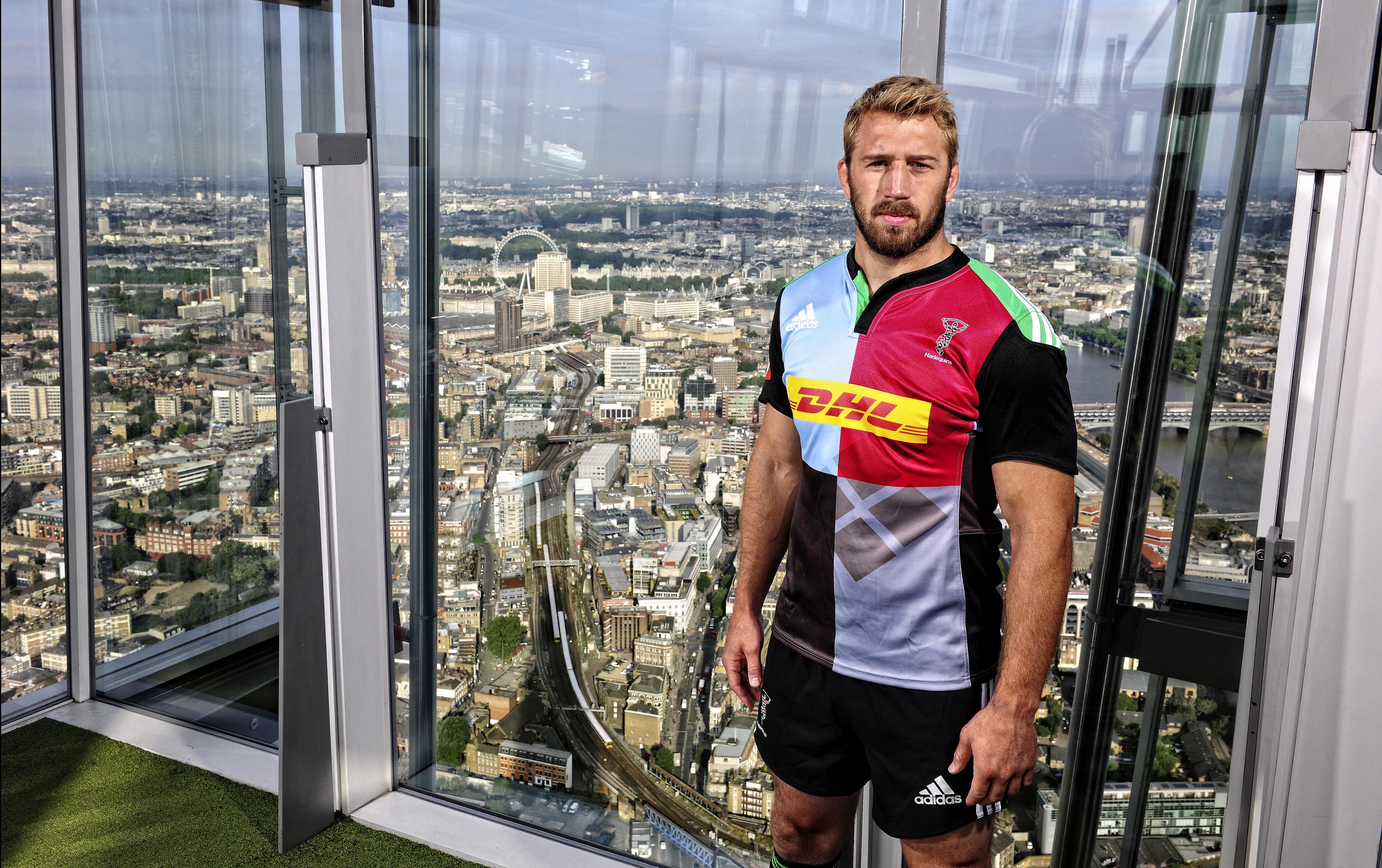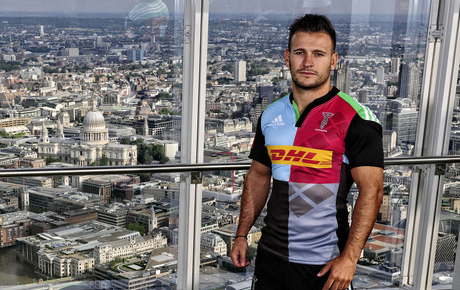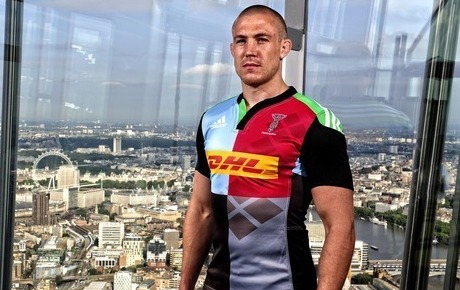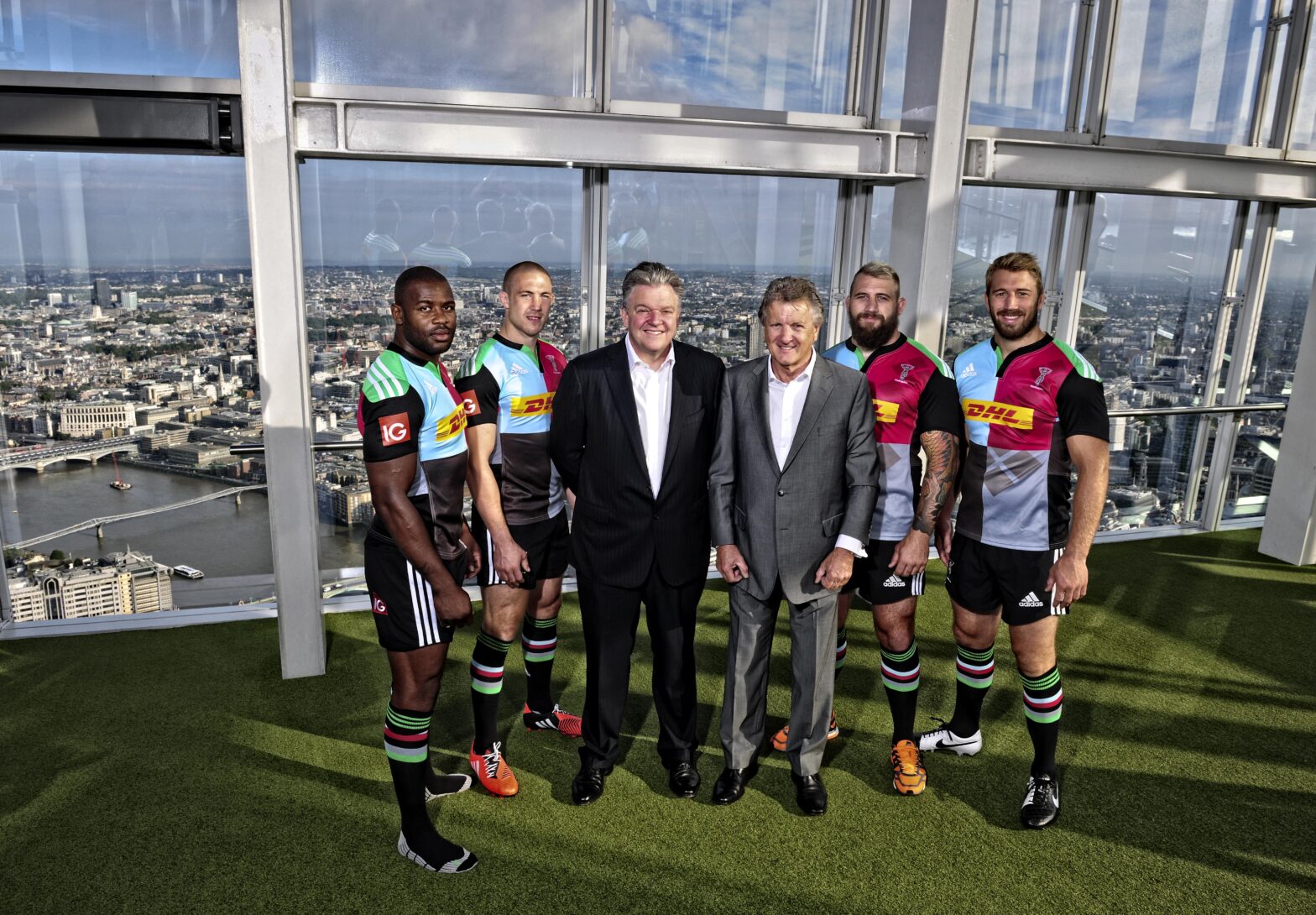As a sports fan myself, I’m often struck by how much of a positive and inspirational effect a captain or leader can have in reversing fortunes – making sure everyone is pushing towards a common objective.
Being fortunate enough to meet a few England and Harlequins rugby players, I decided to find out what they thought made a great leader – the traits needed both on and off the pitch to secure a win.
The trio I spoke with, Chris Robshaw, Mike Brown and Danny Care, have all represented their club and country at the very highest level – travelling to World Cups, Lions tours and European games.
Interestingly enough, Robshaw himself opened a Winchester-based coffee shop in 2013 so is well versed in determining what it takes to captain a successful team and run a small business.

England and Harlequins captain Chris Robshaw is a business owner
When quizzed on what he thought made a great leader, and the traits he tries to bring in captaining Harlequins and England, Robshaw told me, ‘I think you have to be willing to put the work in, you can’t be getting off early and leaving everyone else to do it.
‘You have got to be responsible, able to delegate and put other good people in charge. Leadership is not an individual thing, you need to have great people around you who can help support.’
The ability to learn from others and acknowledge that a leader doesn’t know everything is another factor he believes is important, as a way of improving performance.
‘At the end of the day it doesn’t have to be your thought, if someone else has a better one use it,’ he adds. ‘Of course, when the decision is made you have to stick by it and back it, but don’t be afraid to take it if it benefits the group or situation.’
More on sport and business:
- How the skills of Alex Ferguson can be used to construct management team
- The Roberto Martinez syndrome
Robshaw has now captained England 27 times and will likely be the man to lead when the Rugby World Cup comes to England in 2015. The rugby player captains both Mike Brown and Danny Care for club and country, with all three having been at Harlequins since at least 2006.
For Care, the thing that makes Robshaw a great captain and leader is his ability to make the big decisions, something a business owner or manager needs to do frequently.

Danny Care plays at scrum half for England and Harlequins
‘He makes a decision and everyone backs him up because of the respect we have for him and how good a leader he is,’ Care said to me.
‘I’ve had some good captains, and the main thing is leading by example. They have to set the standards that they want you to adhere to. They have to be someone who is motivational and inspirational.’
While Care acknowledges that it isn’t always a case of giving the biggest team talks, he believes a great leader has to be someone you respect, listen to and want to hear what they say.
‘If we’re struggling Chris [Robshaw] will pull everyone in, strip it back to basics and get back to normal processes and what we do best. The key about being a good captain is knowing when that needs to be done.’
The timing of intervention, and the subsequent advice dished out, can be a careful balancing act for entrepreneurs and business owners. Despite creating a team around them who are capable of leading themselves, there will always be a time when the overall leader must step in and take charge.
Good communication is a key competent of being a successful leader, fellow player Brown said. Being able to get everyone pulling in the right direction must be married with having good people around you, he adds.
With Brown involved with rugby at both Harlequins and England, he has become a senior player within the club team and is a leader himself when it comes to advising and mentoring younger players.

Mike Brown is a leader on the pitch
‘I’m not one for big speeches and talking lots off the field, I like to set good examples and show determination. Once I step over the whitewash it is then all about communication with the players around me.’
Harlequins has just taken on logistics company DHL as a main sponsor, and the experience that senior players have gained playing rugby at the highest level is something that DHL will be looking to exploit with its community of small and medium-sized business customers.
Harlequins players with DHL’s John Pearson and Phil Couchman
A lot has been done to make mentors and advisors more readily available to the expanding SME community in the UK. From what I’ve heard, a great deal can be learned from the sports men and women of this generation and previous ones.






